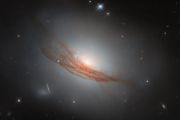
Copernical Team
NASA partners with universities for soil-monitoring and optical comms CubeSats
 NASA's CubeSat Launch Initiative is set to send two CubeSats to the International Space Station (ISS) as part of the 21st Northrop Grumman commercial resupply mission.
CySat-1, developed by students from Iowa State University, will measure Earth's soil moisture from low Earth orbit using a software-defined radiometer. This radiometer processes analog radio signals through software, and stu
NASA's CubeSat Launch Initiative is set to send two CubeSats to the International Space Station (ISS) as part of the 21st Northrop Grumman commercial resupply mission.
CySat-1, developed by students from Iowa State University, will measure Earth's soil moisture from low Earth orbit using a software-defined radiometer. This radiometer processes analog radio signals through software, and stu Hera mission sparks new discoveries about target asteroids
 As ESA's Hera mission for planetary defense completes its pre-launch testing, its target asteroids have been revealed as intriguing small worlds. A special issue of Nature Communications this week features studies on the Didymos asteroid and its moon Dimorphos, based on close-range footage from NASA's DART spacecraft and images from the Italian Space Agency's LICIACube.
On September 26, 20
As ESA's Hera mission for planetary defense completes its pre-launch testing, its target asteroids have been revealed as intriguing small worlds. A special issue of Nature Communications this week features studies on the Didymos asteroid and its moon Dimorphos, based on close-range footage from NASA's DART spacecraft and images from the Italian Space Agency's LICIACube.
On September 26, 20 Creating a Lunar Biorepository to protect Earth's biodiversity
 An international team of scientists has proposed a novel solution to safeguard the planet's biodiversity amid the growing extinction crisis: a biorepository on the Moon. Detailed in the journal BioScience, this plan aims to establish a passive, long-term storage facility for cryopreserved samples of the world's most endangered animal species.
Dr. Mary Hagedorn from the Smithsonian's Nation
An international team of scientists has proposed a novel solution to safeguard the planet's biodiversity amid the growing extinction crisis: a biorepository on the Moon. Detailed in the journal BioScience, this plan aims to establish a passive, long-term storage facility for cryopreserved samples of the world's most endangered animal species.
Dr. Mary Hagedorn from the Smithsonian's Nation Space propulsion-as-a-service gets a Boost!
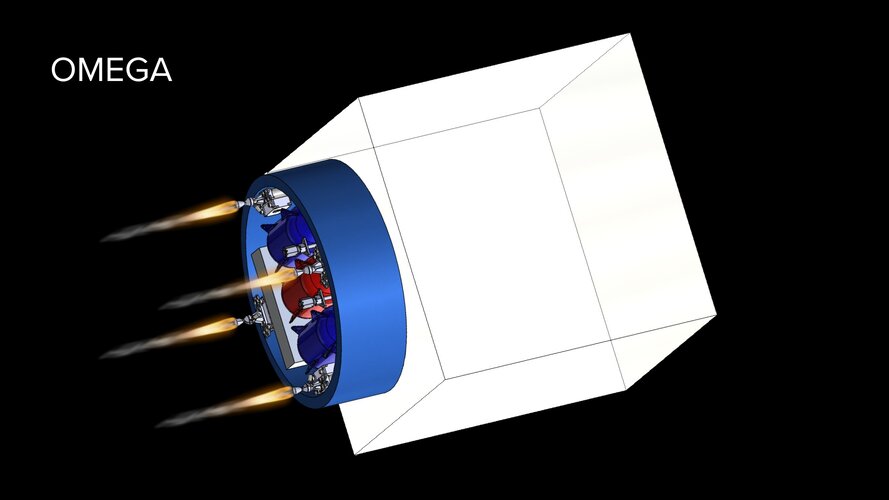
Euclid Galaxy Zoo – help us classify the shapes of galaxies
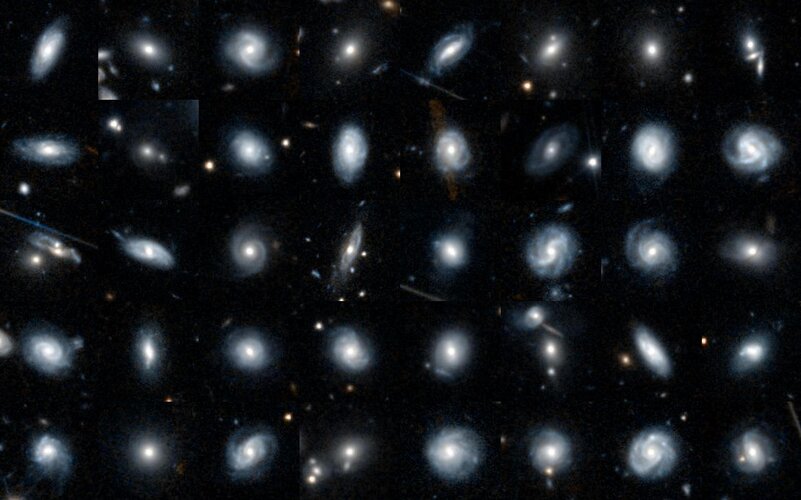
Space is not the limit
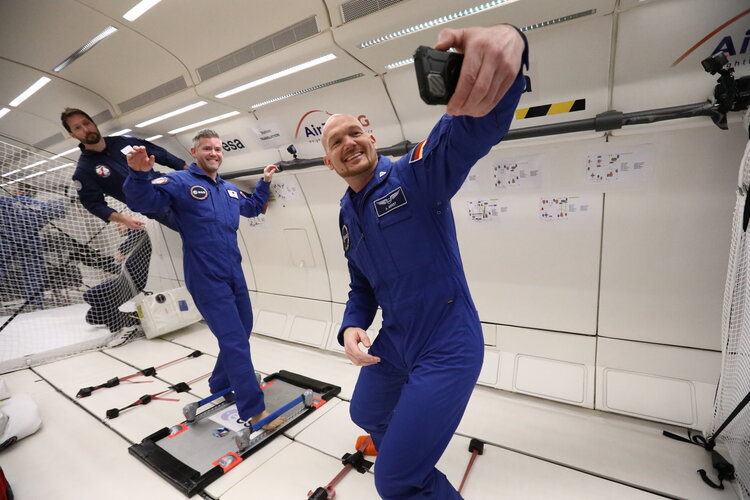 Image:
Space is not the limit
Image:
Space is not the limit After debris concerns, SpaceX to shift Dragon capsule landings from Florida to California

Evidence of debris stemming from return trips of SpaceX Dragon spacecraft has prompted the company to shift future landing operations from Florida to California.
The move was announced Friday during NASA's press conference previewing the upcoming Crew-9 mission to the International Space Station, and it won't take effect until 2025 after Crew-9 has returned.
"After five years of splashing down off the coast of Florida, we've decided to ship Dragon recovery operations back to the West coast," said Sarah Walker, SpaceX's director of Dragon mission management.
This includes both cargo and crew versions of its spacecraft.
At issue is the trunk portion of the Dragon capsule that is discarded before reentry and splashdown. Initially, the cargo version of Dragon made returns in the Pacific 21 times from 2011-2020, but when crew capability came online, SpaceX made the shift to allow for capsule landings off the coast of Florida either in the Atlantic or Gulf of Mexico.
Feeding that decision were models that predicted how the trunk portion would break up in Earth's atmosphere.
"SpaceX and NASA engineering teams used these industry-standard models to understand the trunk's breakup characteristics, and they predicted the trunk would fully burn up due to the high temperatures that are created by air resistance during that high speed reentry into Earth's atmosphere," Walker said.
'The clock's already started': NASA counting down to most powerful human spaceflight ever

The launch clock isn't set yet, but the hardware is lined up for what would become the most powerful rocket to ever send humans into space during a moonbound trip the likes of which has not happened in more than 50 years.
The biggest piece of the Space Launch System rocket, the 212-foot-long core stage, crept its way into the massive Vehicle Assembly Building on July 24 where work will begin to prepare it for the Artemis II launch set for no earlier than September 2025.
"The clock's already started," NASA SLS program manager John Honeycutt said. "We've got a great deal of work to do to get the rocket ready to go fly."
The core stage sports four RS-25 engines converted by Melbourne-based L3Harris' Aerojet Rocketdyne from the retired stock of the Space Shuttle Program. Two of the engines have previously flown on a combined 20 shuttle missions while the other pair are making their debuts.
Engine 2047 flew on STS-135, the final launch of the program on Space Shuttle Atlantis in 2011.
Also no stranger to KSC are the casings from the two solid rocket boosters fabricated by Northrop Grumman.
Fly-around observation images of space debris released
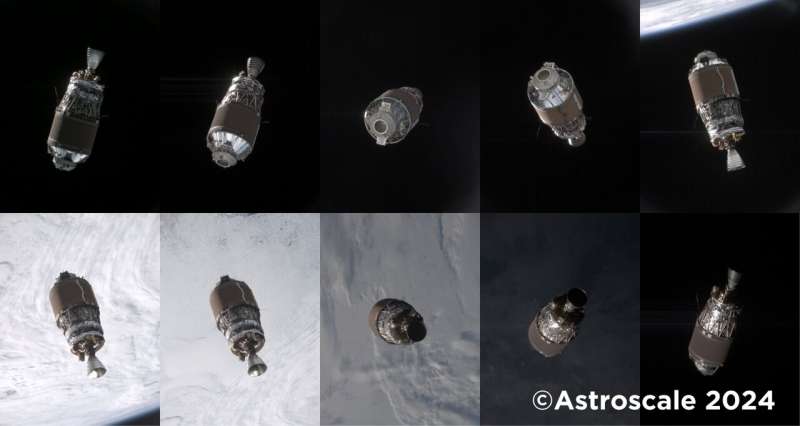
The Japan Aerospace Exploration Agency (JAXA) has advanced the Commercial Removal of Debris Demonstration (CRD2) Phase I project. Under this initiative, the demonstration satellite ADRAS-J, developed by Astroscale Japan Inc., has successfully captured images of space debris, a non-cooperative target, through "Fly-around observation." These images have now been released by Astroscale Japan Inc.
The fly-around observation service is the third of the four services required by JAXA in CRD2 Phase I. This service involves pointing a camera at the target debris, maintaining a constant distance from it, and orbiting around the target debris to capture images from different directions.
Glimpses of Hera’s target asteroids inspire new science

As ESA’s Hera mission for planetary defence completes its pre-launch testing, its target asteroids have come into focus as tiny worldlets of their own. A special issue of Nature Communications published this week presents studies of the Didymos asteroid and its Dimorphos moon, based on the roughly five and a half minutes of close-range footage returned by NASA’s DART spacecraft before it impacted the latter body – along with post-impact images from the Italian Space Agency’s LICIACube.































